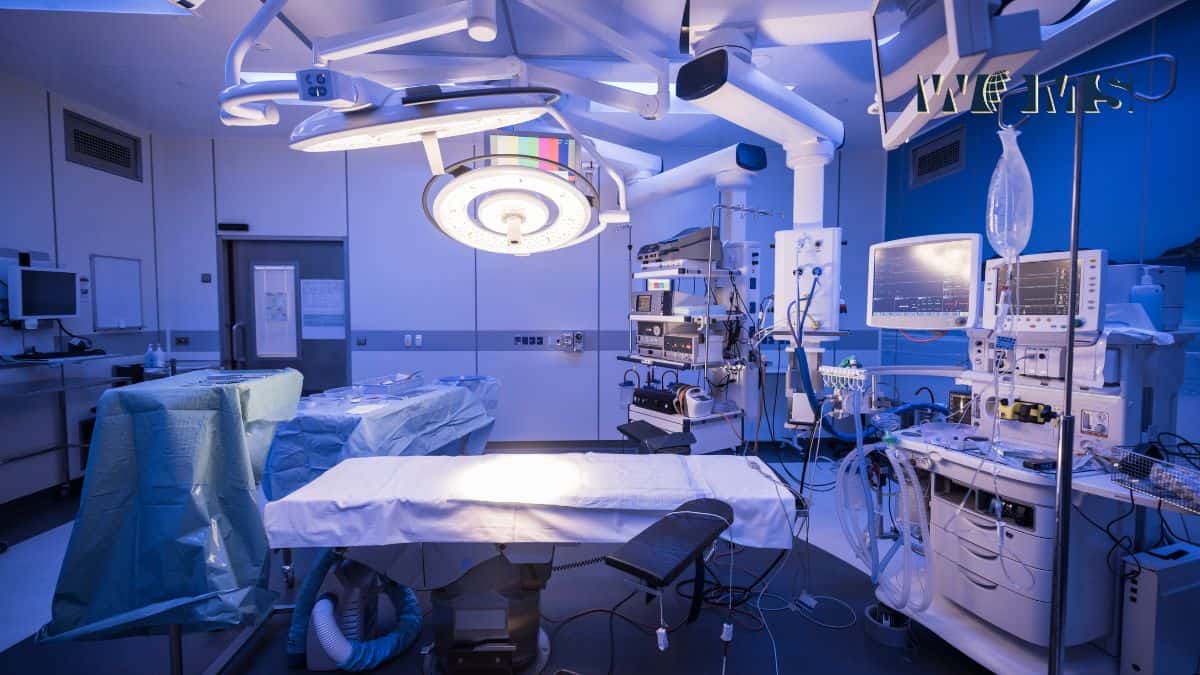Top 10 Hygiene Rules For Hospitals

The thing with hospitals is, they need to be clean to be safe. They need to be clean so that they can provide their patients with optimal services without endangering anyone’s health.
To avoid any medical disasters, hospitals must adhere to strict hygiene guidelines.
Here’s a list of the top hygiene rules that hospital management must strictly enforce.
1. Hand Hygiene
As implied by the phrase itself, “hand hygiene” involves ensuring that one’s hands (especially the medical professional’s) are clean and entirely disinfected before they enter the operating room or conduct any check-up.
This also involves ensuring that the doctor is and isn’t equipped with certain garments or tools on themselves. Such items include not wearing any sort of jewelry, artificial nails, and other such items.
As well as that, there is an 11-step hand-washing routine as defined by WHO (2006).
Doctors and medical staff should wash hands before and after direct contact with patients, after removing gloves and using any surgical tools, touching any sort of bodily fluid, and making contact with and moving the patient throughout the hospital rooms.
2. Gloves
Any operating medical professional must be present in the room with the proper attire, down to the very gloves which shall be used during any procedure.
These should be worn by the doctor while conducting surgery, especially when they will make contact with bodily fluids, blood, etc. Also, they should change their gloves when they are changing between tasks in the operating room to prevent infections during surgery.
All used gloves should be disposed of immediately and the doctor must perform hand hygiene before meeting with anyone else, patient or otherwise.
3. Facial Protection
The doctor is also expected to safeguard their own exposed and vital body parts while they conduct surgical operations. As such, they must wear surgical masks and eye protection whilst in the operating room.
A facial shield may also be used to prevent any secretions (mucus, spit, tears, etc) from infecting the patient in the room.
4. Gown
This is worn by medical professionals to protect their bodies from any splashes of bodily fluids (blood, secretions, etc). It also permits mobility for ease of performing surgical operations.
These gowns must be worn not only by medical professionals but also by any visitors who may want to see the patients. For them, single-use, nonwoven gowns with tight cuffs are recommended for easy usage and disposal.
5. Prevention Of Injuries From Medical Equipment
Another straightforward tip. Doctors are present in hospitals to cure others, not injure themselves.
Sure they can fall sick and get hurt because accidents do happen. But it’s in everyone’s best interest if these injuries do not occur while a doctor is treating a patient.
Medical professionals should be very careful and proper while making use of any medical equipment such as needles and other such devices. Not only could they get severely infected by the soiled needle, they also risk worsening the condition of the patient if their blood or mucus mixes with the patient’s internal system.
All medical equipment must be cleaned and disinfected as soon as their use is accomplished so that the substances on it do not infect anyone in the vicinity. They should then be stowed away appropriately in stable storage spaces like InnerSpace medical cabinets.
6. Housekeeping In The Facility
There are many types of substances that could be found in the area around a freshly used surgical room or lab or any place which has been inhabited by a patient or doctor. Cleaning of such places (and by default, the medical facility as a whole) should be meticulous in more ways than one.
Regular cleaning of the facility should take place to make sure the common areas are safe for patients of all sorts and their visitors. Benches, administration areas, etc should be hygienic as possible so that no disease spreads.
Any area used for medical procedures (check-ups, surgery, lab testing, etc) should be cleaned with more attention to detail. Areas with organic matter (bodily fluids, blood, etc) must be wiped off, cleaned and disinfected immediately so that no microbe has a chance to spread.
7. Food Service
This is crucial and most obvious. Hospital kitchens are to be cleaned and sanitized at all times so that the food cooked there doesn’t cause any harm to the residing patients, staff and visitors.
As well as that, kitchens are also responsible for preparing food for patients in accordance with the dietary plans prescribed to them by their doctors. As such, they must always be stocked up with the necessary ingredients and well-equipped to prepare nutritious and safe food to eat.
8. Waste Management
Hospitals are bound to generate a lot of waste, particularly bio-waste. Besides, the basic waste disposal procedure, care should be taken to segregate waste according to the waste disposal guidelines.
Hospitals should ensure that any human waste with the potential of contaminating the environment and exposing other patients to serious diseases is kept away from recyclable waste. In fact, all hospital staff must be educated and trained to give effect to immediate disposal of used syringes, cotton swabs, bandages, etc.
Overall, hospital management should take measures to facilitate cleanliness and methodical waste disposal. The most important step in this direction includes providing separate waste baskets for non-recyclable, recyclable and hazardous biowaste.
Also, display posters and signs explaining the importance of segregation waste all around the hospital building and campus, to make all patients and visitors aware of the waste management procedure.
9. Patient Hygiene
Patient hygiene is equally important. Every hospital should instruct the nursing staff to assist indoor patients in maintaining the hygiene standards in the hospital.
Indoor patients should compulsorily wear clothes provided by the hospital. Patient beds, wards and private rooms must be adequately cleaned and sanitized at least once daily.
Also, visitors should be advised to wear masks and sanitize their hands before entering a patient’s ward or room to prevent cross-contamination.
10. Linen Care
Linens are extensively used in hospitals and play an integral role in the services. Be it during a surgical procedure or in the patient rehabilitation phase, executing patient care would be impossible without surgical linen, medical scrubs, patient bedding, towels, curtains, etc.
Adequate hygiene and care of hospital linen is therefore a must to minimize the risk of spreading germs in the hospital environment, and also for the comfort of the patients recovering from illness.
Every hospital should lay down strict procedures for collecting used and soiled linens, their laundry and washing, and also storage of clean sanitized linens.
Conclusion
Laying down hygiene standards and defining protocols for hospital staff and doctors is only the first step in guaranteeing a highly sanitary environment for your patients.
Of course, implementing these rules and executing these protocols are also very crucial aspects in the same direction.
We hope that you and your hospital take these guidelines into serious consideration and commit yourself to the highest hygiene standards.




